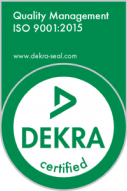Dallas Business Journal – Texas A&M has negotiated a master professional services contract that allows the system’s universities to use Columbia Advisory Group’s services to help lower the cost of tracking student information, including applications, financial aid and other student data.
“CAG has an excellent track record in this field, including keeping costs within budget,” said Mark Stone, Chief Information Officer of Texas A&M. “We will be able to improve services and compliance while also reducing our overall spend.”
Stone estimated that the cost of tracking student information, on average, could be reduced by 30 percent.
Columbia creates and provides detailed IT analysis and solutions to deliver better financial visibility, identify and mitigate risks, and improve performance. The industries representative of its clients include higher education, health care and pharmacy, private equity and venture capital, manufacturing, financial services, real estate, as well as media and publishing. Approximately 40 to 50 percent of its work is in higher education, 10 to 15 percent in the private equity/venture capital sector, and the remainder in health care and manufacturing.
As an information technology consulting firm, it is software and hardware agnostic. Based in Dallas, the 100-employee firm works with clients throughout the United States.
David McLaughlin, president and CEO of Columbia, spoke with the Dallas Business Journal about its company philosophy:
What is your company’s growth strategy?
Our DNA comes from working primarily out of the private equity sector and venture capital sector, several of us have worked in that sector for a lot of years with companies and organizations that are fast growth. I think a lot of our growth will continue to be in the private equity and venture capital sector, where we are working with them on acquiring companies and helping them approve operations on existing companies they are invested in, but it also has translated well for us into several other sectors that are growing rapidly, including higher education.
Our ability to assist organizations with not only IT performance but with compliance and also with cost savings and management — getting the most out of what they invest.
Similarly, the cost of health care is important but so is compliance and the ability for technology to perform so that organizations can be more efficient. There is a lot of growth in those areas.
Is your approach the same irrespective of the sector?
From a technology standpoint similar things are important. Most IT and technology organizations have a lot of similarities. Everyone uses networks, email, most of them have financials.
Probably 60 to 70 percent of IT and technology groups are similar. And, there are some things that are specific to that industry that you have to know. But a lot of it is about fundamentals, if you can get the technology fundamentals right, there are quite a few sectors that those fundamentals apply to.
What are some of the big issues you’ve seen in security?
Security is a very hot topic across the different industries that we work in. A big component is fundamentals, if people do the things their technology groups ask them to do — changing passwords appropriately, using the right types of passwords. Trying to avoid clicking on things they really should avoid. There will always be technologically sophisticated attacks, those are getting more prominent, but a lot of the security issues people have are very basic.

